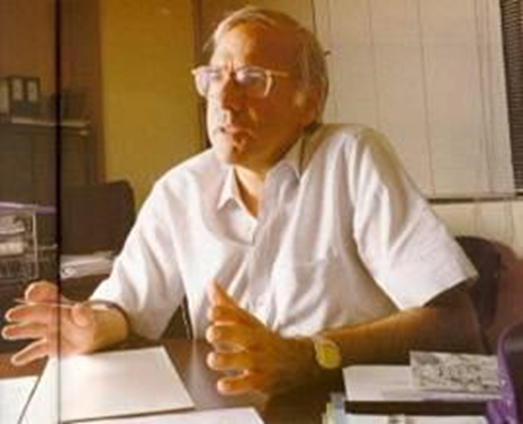In memoriam
Júlio Maggiolly Novais (1943 – 2012)

Júlio Maggiolly Novais graduated in 1966 in Industrial Chemical Engineering from the Instituto Superior Técnico at the Technical University of Lisbon. After his graduation, he began working at IST as an Assistant in Chemical Technology. In 1968, he started his postgraduate studies at the University of Birmingham, United Kingdom, obtaining an M.Sc. in Biological Engineering and completing his doctorate in 1971 with a pioneering thesis on enzyme immobilization under the guidance of Nick Emery. In 1974, he returned to IST as an Assistant Professor and established the first course in Biochemical Engineering in Portugal. He was a pioneer in teaching Biotechnology in Portugal.
His scientific activity focused on Enzyme Technology and Environmental Biotechnology, two areas that he developed, not only at IST but also in other universities and research laboratories. He was one of the founders of the “Center for Biological Engineering at the University of Lisbon” and served as the Principal Investigator of “Line 7” – the Biochemical Engineering Laboratory at IST. In 1983, Júlio Novais obtained his “Agregação” – a post-doctoral higher qualification. Joaquim Sampaio Cabral was his first doctoral student (1978-1983). He contributed to the creation of the Biotechnology branch of the Chemical Engineering course at IST and the M.Sc. in Biotechnology at IST.
The Portuguese Society of Biotechnology-SPBT was another creation of Júlio Novais in April 1981 during the 2nd European Congress of Biotechnology held in Eastbourne, in the South of England. The SPBT was officially launched in May 1981, and Júlio Novais became its first President. He was the driving force behind the society, systematically writing its “Boletim de Biotecnologia” (Biotechnology Bulletin) and joining the European Federation of Biotechnology (EFB).
Júlio Novais also played a very important role in the development of Science and Technology in Portugal. He held various prominent positions in JNICT, including the Presidency of the Biotechnology Coordination Committee and later as Vice-President of FCT (the Foundation for Science and Technology).
He had a significant impact on the development of Portuguese Biotechnology and the careers of its researchers.
